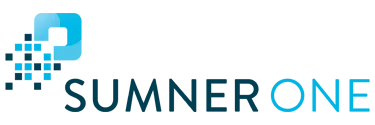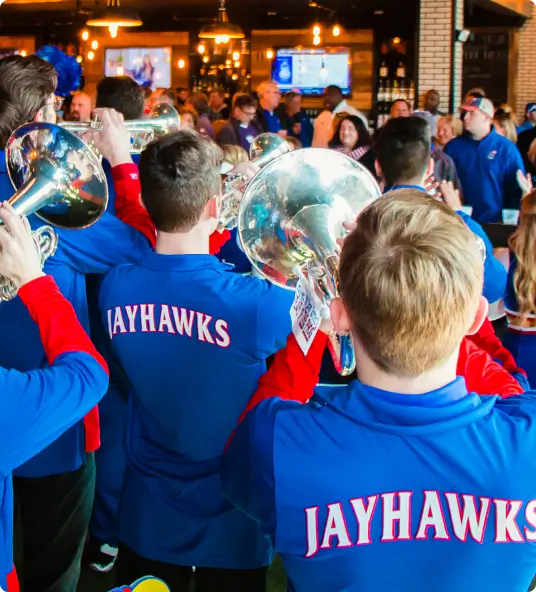Jayhawks in leadership positions are everywhere you look, including through the Jayhawk Career Network. KU Alumni, in partnership with SumnerOne, is highlighting Jayhawk leaders who are models for others in their industries with our “Copy the Leader” program.
How did you get into commodity management?
I was recruited to Honeywell shortly after I completed my MS Supply Chain Management at KU to serve as a commodity manager for mechanical components for our Aerospace business. I knew very little about commodity management coming into the role but quickly got involved in transition projects to dual source critical components to suppliers in low cost regions such as China and Mexico. From that experience I learned to read technical drawings, develop forecasts, issue RFPs, evaluate pricing and negotiate contracts, all within the first four months on the job. I traveled frequently to China and Mexico to evaluate suppliers, assessed supplier capabilities and manufacturing processes, and facilitated development of first articles from the new suppliers.
I transitioned my job to regional commodity managers in China and took a new role in our Building Technologies business managing indirect sourcing of IT hardware and software. I knew very little about IT hardware and software procurement but knew enough about commodity management to adapt and learn. The landscape of IT procurement was changing and I found myself negotiating more with Software as a Service (SaaS) providers. I recently transitioned over to the Supply Chain Management Center continuing to do procurement of IT hardware, software and SaaS. I really enjoy my work, the opportunity to learn from suppliers, and the ability to make impact to the business through cost savings or operational efficiencies that ultimately brings down the cost of goods sold.
What are the qualities of a good leader?
I’ve served under a variety of leaders in both the U.S. Army and at Honeywell. Good leaders have technical competence in their job or function. Great leaders enable their teams by clearing hurdles when needed, applying resources where needed, and pushing people if needed to achieve plans, goals and objectives. I’ve worked under really smart leaders who have asked the right questions, made thoughtful decisions and aligned the right resources to help me succeed at my job. I’ve also worked under managers who don’t ask questions, can’t make decisions and expect everything to be done ASAP. We can certainly learn from both types of leaders but I’ve found that great leaders will accelerate your career while bad leaders will only hold you back.
How do you practice leadership at your job?
First of all, I manage suppliers and not necessarily people within my organization. The job still requires a great deal of organization and leadership to communicate effectively, hold suppliers accountable, negotiate terms and get things done to support business needs. It is not the same as having direct reports but certainly takes the same amount of effort in order to maintain a good working relationship with suppliers. I practice clear communication with my suppliers to set expectations, secure commitments, issue praises and address concerns. I practice collaboration with my suppliers to develop new business opportunities, align resources, clear obstacles, or issue corrective actions when needed. I practice commitment with the supplier to hold me accountable and hold them accountable for our actions within the business relationship.
What makes a team or group successful?
Successful teams get things done. Whether it is a multifunctional team or a team with multiple people doing the same function, successful teams are capable to completing their tasks effectively and efficiently. Everyone on the team knows their role, learns from one another, asks questions and challenges each other to continuously improve. The team supports one another to complete individual and collective tasks. The team also holds each other accountable for goals, objectives, milestones and due dates.
I worked on a transition team where each commodity manager had responsibility for a region and a common goal of transitioning one product to new suppliers within their region. We worked individually on our regions and met regularly to share strategies, issues, challenges and successes. CMs who completed their transition early helped one another until the entire project was completed. We ended up completing the transition ahead of schedule and developed a template for completing future transitions.
How have you adapted to the changes brought by the pandemic in your work?
The biggest change our company made was to shift people from on site to remote working. Technologies that enabled communication and collaboration across multiple sites and countries were already in place and now applied for virtual work from home environments. We use Skype and Microsoft Teams to communicate and share content during virtual meetings. We significantly cut down on business travel, with conference attendance, training and in-person meetings coming to a halt. Essential customer facing travel that was necessary was limited during the pandemic. The cost savings on travel was reduced by 80% of the budget. Those funds were applied toward Covid testing, PPE for our offices.
The Copy the Leader program is brought to you by SumnerOne. SumnerOne is one of the largest independent office technology dealers in the Midwest, with offices in Missouri, Kansas, Illinois, Arkansas, and Oklahoma. We’re a family of respected companies united by ONE goal: to exceed your expectations and help you get the most from your investments in printing, IT, and document technology.




